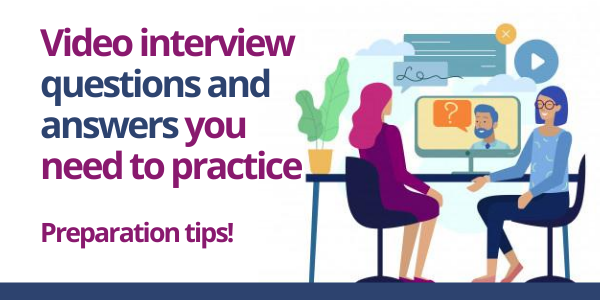Find out how to answer questions and present yourself well in an interview.
Interviewers will start assessing you as soon as you arrive, so your presentation and attitude are very important. You should show you:
- will contribute to the company
- appreciate being interviewed
- want to work for the company
- are willing to learn.
General Tips for Answering Questions
Most interviews start with introductions and informal conversation followed by questions from the interviewer or interview panel, and then a chance for you to ask questions.
- Speak clearly and vary your tone to show you are interested and enthusiastic.
- Take time to think about each question before answering so that you can give a good response.
- Listen to questions carefully and let the interviewer lead the conversation. If you don’t understand a question, ask for it to be explained or repeated.
- Be diplomatic and discreet, and don’t criticise previous employers or co-workers.
- Give examples from your experience that demonstrate your knowledge and skills.
- Show confidence in your skills and be positive about what you have done. For example, instead of using phrases such as “I only have…” or “I don’t have…” tell the employer what you do have to offer.
| Types of questions | What to cover in your response |
|---|---|
| Can you tell us about yourself? | Briefly:
|
| Why do you want to work for this organisation? How will you fit into our business? How will we benefit from taking you on? | Use your research about the job and the company to answer these questions. |
| What made you apply for this particular job? | Talk about your interest in the job and the organisation. |
| What makes you the right sort of person to work for this company? | Explain how your personal qualities, skills and experience, or your work values make you ideal for the job. |
| Have you done this kind of work before? | Discuss any skills or experience you have that will help you do the job. |
| What are your strengths and weaknesses? | Emphasise your abilities by explaining how you overcame your weaknesses, or how you plan to do so. For example, “I’d really like to learn more about computers.” |
Tell me about a time when you…
| Describe:
|
Answering difficult questions about gaps in your CV
If you have gaps in your CV, or in your employment, be ready to answer questions about them.
Talking about long-term illness
The Human Rights Commission states that employers should not ask general questions about health in job interviews. Instead, the questions should focus on checking that you don’t have mental or physical conditions that would prevent you from doing the specific job you’ve applied for.
- If you are fully recovered, strike a balance between being honest, and making it clear that you are now ready to work and that your health won’t be a problem for the employer.
- If your illness is chronic, you should let the employer know if you think it could affect your ability to do the job. Think about it from their point of view, and phrase your answer positively. For instance, “I have arthritis in my foot that prevents me from standing for more than an hour at a time. This has never been a problem in my 10 years of working at a desk, but I’ve been told it could spread to other parts of my body.”
Work-bridge offers a free service to help people with any form of disability to find work. You can contact them for support with your job search and interviews.
Talking about time in prison or serious convictions
If you’ve been in prison or had serious criminal convictions, approaching previous employers could be useful. They will know what you are like as an employee and work colleague and may offer you a job. They may also be able to give you a good reference.
If you get a job interview you may be asked to disclose whether you have a criminal record, in which case do so or discuss it during the interview.
Consider the employer’s concerns and discuss what you’ve done since the conviction. For example, “I have to tell you I have a criminal record. However, I’ve taken an anger management course and I’ve learned how to control my anger in difficult situations.”







